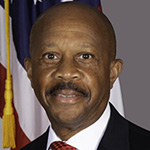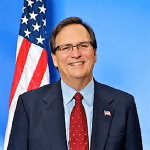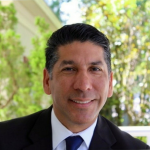Public Policy
Advisory Board

Rungrote Athajarusith
President
UCF Organization for Public Administration

Norton Bonaparte
City Manager
City of Sanford

Susan Boyer
Executive Director
Florida Benchmarking Consortium

Pam Brangaccio
City Manager
City of New Smyrna Beach

Andy Brooks
Human Resources Administrator
City of Casselberry

Byron Brooks
Chief Administrative Officer
City of Orlando

Chad Brown
Chief Administrative Officer
CBC Helps

Nancy Christman
Intergovernmental Coordinator
St. Johns Water Management District

Bill Cowles
Supervisor of Elections
Orange County

Marilyn Crotty
Director
Institute of Government

Bill D’Aiuto
Administrator
Department of Children and Families

Michael Deal
Chief Administrative Officer
Winter Park Police Department

Lisa Early
Director
City of Orlando Parks and Recreation

Jonathan Evans
Government Administration

Jose Fernandez
President
Florida Compass Group

Timothy Hill
President
UCF International City/County Management Association

Kierra Jackson
Vice President
UCF International City/County Management Association

Edward Johnson
Chief of Staff
Lynx

Richard Levey
Vice President
Lake Nona Properties

Desiree Matthews
Deputy City Manager
City of Kissimmee

Angel Morales
Orlando Office Manager
Social Security Administration

Michelle Neuner
Assistant City Manager
City of Winter Park

Marsha Noel
Senior Management Fellow
City of Fort Lauderdale

Cornita Riley
Chief Administrative Officer
Orange County Corrections

Danny Rivera
Assistant to Mayor Jacobs
Orange County

Jack Schluckebier
Director of Land Development
Melbourne International Airport

Joyce Shanahan
City Manager
City of Ormond Beach

Sally Sherman
Deputy County Administrator
Flagler County

Lynn Tipton
Director
Florida League of Cities University

Janet Tutt
District Manager
Village Community Development

Donna Walsh
Health Officer
Florida Department of Health in Seminole County
Strategic Plans
Vision
The undergraduate public administration programs are the preferred program of choice in the state of Florida providing the highest quality undergraduate education for careers in public administration. With a contemporary curriculum, innovative instruction, scholarly and applied research, and community service the program continues to develop a national model of community partnership and service in an evolving metropolitan environment.
Mission
The undergraduate public administration programs provide high quality undergraduate education for current and prospective practitioners in public and nonprofit organizations. Within an evolving metropolitan environment, the program is designed to develop and enhance leadership and management skills essential to public and nonprofit organizations. The curriculum administers ethical principles, critical functions, and professional skills to help students contribute to the policy process and become leaders and managers in public and nonprofit organizations. The undergraduate public administration programs use a public governance model that proactively engages the diverse and changing citizenry.
Values
In a spirit of collegiality and collaboration, the undergraduate public administration programs develop effective partnerships with our local community, other college and university departments, and the academic community at large. All aspects of our programs promote leadership through adherence to democratic principles and the highest standards of ethical conduct. The undergraduate public administration programs value diversity and multiculturalism with an active outreach and recruitment effort to meet diversity goals.
The Strategic Plan Process
The Public Administration Advisory Board, faculty, and staff of the School of Public Administration held a retreat and abbreviated strategic planning session in conjunction with its quarterly meeting in order to establish goals for the undergraduate programs in Public Administration. Ms. Marilyn Crotty, Director of the Florida Institute of Government at the University of Central Florida facilitated the session. At the retreat the group participated in an analysis of the strengths, weaknesses, opportunities, and threats that might affect the program. They then identified the strategic issues facing the program and formulated them into six (6) goal areas.
The Public Administration advisory board devoted time to developing measurable objectives and strategies for each goal. This work was incorporated into a draft strategic plan that was disseminated to the work group. The undergraduate public administration programs (Bachelors of Arts and Bachelor of Science in Public Administration) were undergoing the state-required seven (7) year program reviews. The recommendations from the program reviewers regarding all three programs were then included in the strategic plan.
The recommendations from the outside reviewers were discussed and incorporated into the strategic plan as appropriate. The remaining objectives and strategies were discussed and completed. The draft of the strategic plan was discussed in detail and the Public Administration Advisory Board approved this draft of the plan, which was submitted to the faculty of the School of Public Administration for approval in late May.
This plan reflects over a year of work and the efforts from multiple stakeholders, who are dedicated to addressing the strategic issues facing the undergraduate Public Administration programs at the University of Central Florida. The plan will be assessed each Public Administration Advisory Board Meeting using the strategic issues as the format for the agenda each meeting.
Undergraduate Public Administration Program Strategic Plan 2012-2017
The Public Administration program’s current goals and objectives include the following:
Goal 1: Increase student engagement
- Increase graduation rates
- Strengthen student organizations
- Increase alumni engagement and commitment with an alumni chapter
Goal 2: Completion of competency integrated curriculum and assessments
- Annually review the Institutional Effectiveness Program
Goal 3: Improve public service in the region, nationally, and internationally
- Improve the dissemination of scholarly knowledge
- Address local government research needs by conducting one project per year
Goal 4: Develop funding for student scholarships
- Make and implement a “PA Development Plan”
- Establish one endowed scholarship for a Public Administration student
Note: The objectives in the full plan each contain measures and time for completion, which the advisory board uses for assessment.
Vision
The UCF MPA program is a preeminent graduate degree program, recognized globally for excellence in professional public administration education, scholarship, and community impact. It is the preferred graduate program for current and prospective public sector professionals at all levels of government.
Mission
The UCF MPA program prepares students to confront and solve complex societal challenges. Building from a supportive and diverse environment, the program transforms students into effective and ethical public sector professionals skilled in cultural competence, strategic management, techniques of policy and financial analysis, and effective communication necessary to excel in all areas of government service and enhance the university’s collective impact on the community it serves, globally defined.
Values
The UCF MPA program is committed to professionalism, ethics, and cultural competence brought about through diversity and inclusiveness. To that end, the program embraces the following ethical and professional principles.
Ethical Principles
We advocate the following ethical principles of conduct as the foundation of public service:
- Integrity—to serve in an honest, transparent manner while honoring promises;
- Benevolence—to promote the public good, avoid doing harm, and respect the worth of each individual;
- Fairness—to act in a way that is just and equitable to all, while avoiding undue burden on the most vulnerable in our society; and
- Social Justice—to identify and address the unfair burdens experienced by groups of individuals through intentional and unintentional policies, laws, and societal projects and practices.
Professional Principles
We advocate the following professional principles to advance public service as a profession:
- Commitment—to pursue a passion for the public interest with accountability and transparency;
- Competence—to utilize the most current knowledge, skills, and abilities to serve the public interest with efficiency and objectivity;
- Scholarship—to cherish and honor learning that enriches the human experience;
- Stewardship—to accept responsibility for decisions and actions regarding the protection of public resources;
- Diversity and Inclusiveness—to respect and value all perspectives and experiences, creating an environment that is open to all; and
- Leadership—to inspire others to advance the public interest while actively promoting democratic participation and collaboration.
Graduate Public Administration Program Strategic Plan 2017-2022
The public administration program’s current goals and objectives include the following:
- Goal 1: The MPA Program will establish a clear identity to its current and potential stakeholders and within the discipline of public administration.
- Goal 2: The MPA program will prepare its students to gain employment and thrive in the public and nonprofit sectors.
- Goal 3: The MPA program will effectively apply its expertise to address local, regional, state, national, and global public issues.
- Goal 4: The MPA program will help SPA to fully fund its current and future operations.
- Goal 5: The MPA program will effectively manage future growth.
- Goal 6: If required, the MPA program will seamlessly and effectively transition its operations to the new UCF Downtown campus.
Note: The objectives in the full plan each contain measures and time for completion, which the advisory board uses for assessment. To view the full plan, please click here.